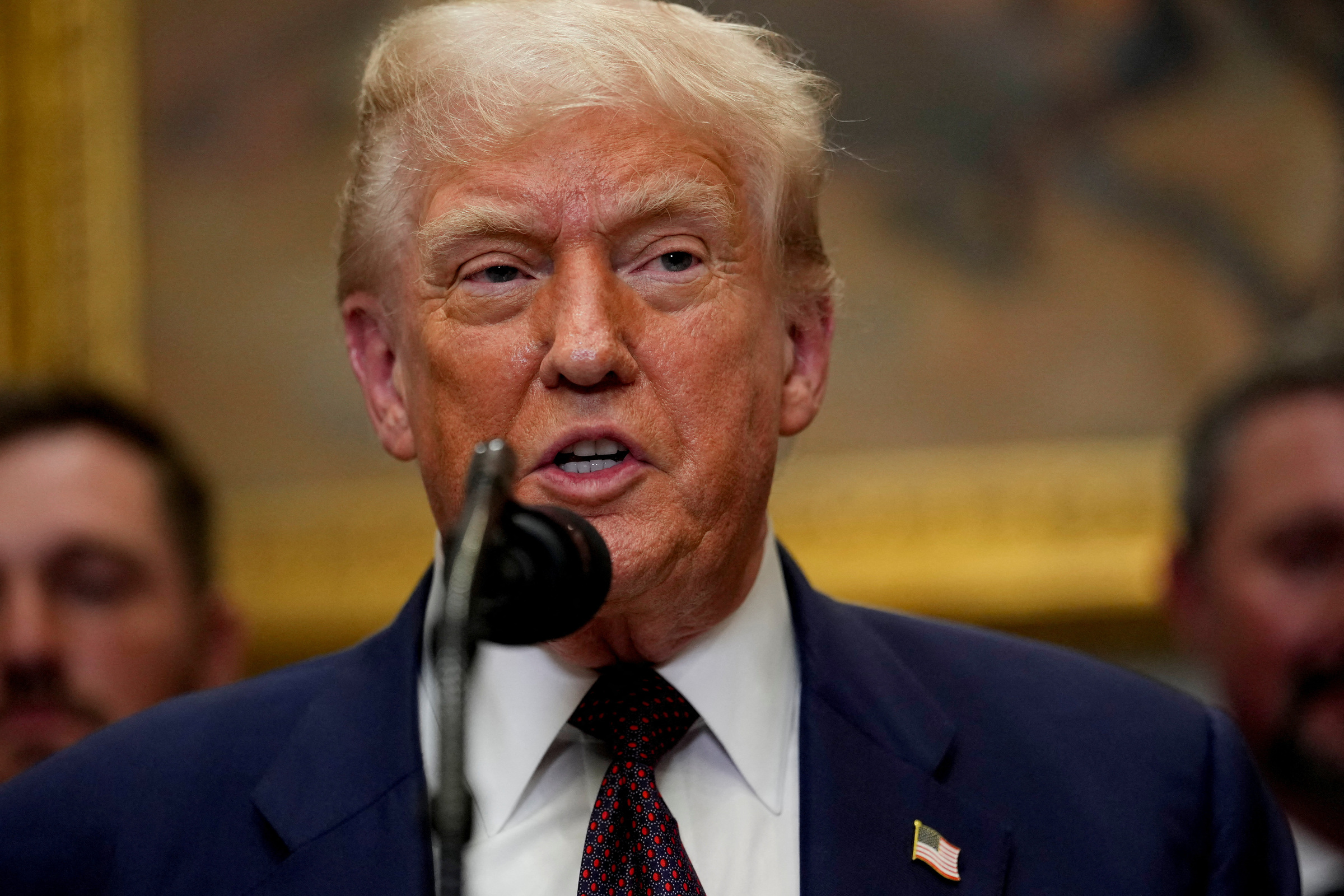"A 100% tariff will be applied to all imported chips and semiconductor products," Trump told reporters at the Oval Office on 6/8. "But if you commit to manufacturing, or are in the process of manufacturing in the US, as many companies have done, there will be no tariffs."
He also emphasized that companies that promised to build factories in the US but haven't or won't do so will face "cumulative" tariffs. "If for some reason you had the intention to build but then canceled the decision, we will add it up, the tax amount will be accumulated and we will eventually charge you one day. You have to pay," he continued.
Trump did not specify which types of chips would be subject to the tariffs.
 |
Former US president Donald Trump speaks at the White House on 31/7. Photo: Reuters |
Former US president Donald Trump speaks at the White House on 31/7. Photo: Reuters
In 2022, the US Congress passed a $52.7 billion semiconductor research and production subsidy program to encourage companies to return or come to the US for manufacturing. Last year, the US Department of Commerce under President Joe Biden persuaded five leading semiconductor companies to locate chip factories in the country as part of the program.
According to statistics from last year, the US produces about 12% of the world's semiconductors, down from 40% in 1990.
Many large companies like Apple, Intel, and TSMC are building factories or have announced large investments in US production. Most recently, TSMC, the world's largest chip foundry, will ship 2 nm chips from one of its Arizona plants between 2028 and 2030. The Taiwanese company had previously invested about $100 billion to build the factory there.
On 6/8, a White House official said Apple is about to announce a commitment to invest $100 billion in US manufacturing, according to Reuters. Meanwhile, CNN reported that this investment will include the implementation of the American Manufacturing Program to shift more of the company's supply chain back to the US.
Bao Lam (via Reuters)
'iPhones subject to 25% tariffs are still cheaper than manufacturing in the US'












